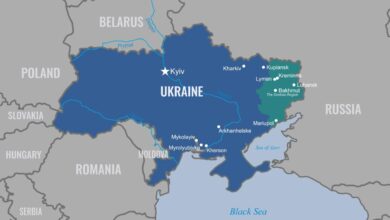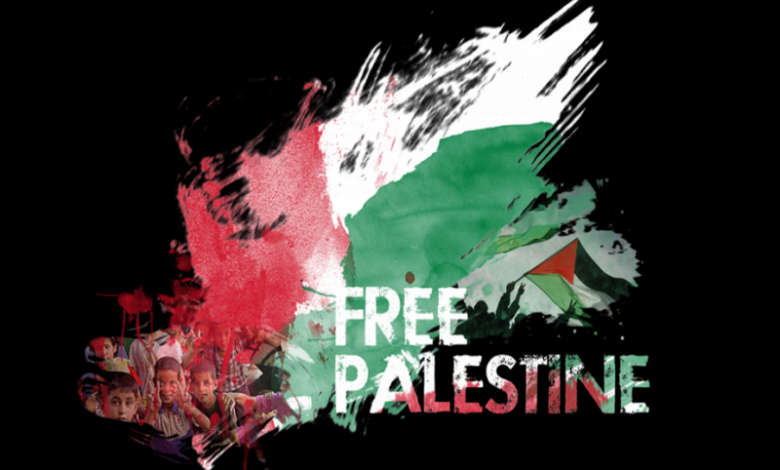
What Does It Mean to Recognize Palestinian Statehood?
What does it mean to recognise palestinian statehood – What does it mean to recognize Palestinian statehood? This question, seemingly simple, unravels into a complex tapestry woven from decades of conflict, international law, and deeply held beliefs. Understanding its implications requires exploring the historical context, the legal arguments for and against, and the potential ramifications for both Palestinians and Israelis. It’s a journey through political maneuvering, humanitarian concerns, and the enduring quest for self-determination.
From the British Mandate era to the present day, the path to Palestinian statehood has been fraught with challenges. Key agreements like UN Resolution 181 and the Oslo Accords have shaped the narrative, yet disagreements persist on the meaning of sovereignty and self-determination within the context of the ongoing Israeli-Palestinian conflict. The differing perspectives of the PLO, Israel, Arab states, and the international community further complicate the issue, highlighting the multifaceted nature of this crucial geopolitical question.
Historical Context of the Palestinian Statehood Question
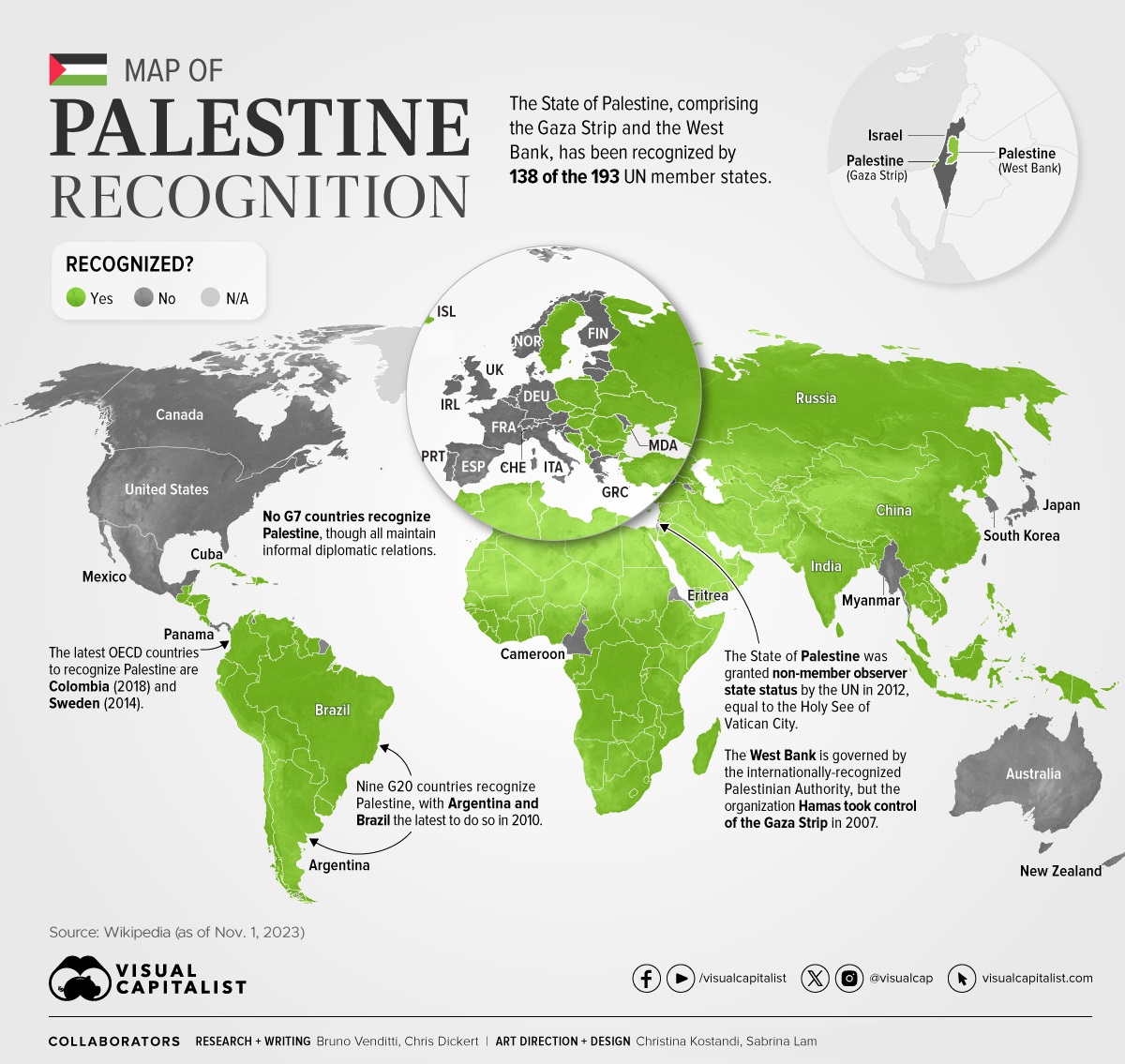
The quest for Palestinian statehood is a complex issue deeply rooted in historical events and evolving political dynamics. Understanding its current form requires examining the trajectory of the Palestinian national movement from its origins under the British Mandate to its present-day struggles. This journey is marked by significant events, agreements, and shifting alliances that have profoundly shaped the debate surrounding a sovereign Palestinian state.
The Emergence of Palestinian Nationalism under the British Mandate
The period of British Mandate Palestine (1920-1948) witnessed the rise of Palestinian national consciousness. While initially fragmented, Palestinian identity solidified in response to Zionist immigration and the increasing assertion of Jewish claims to the land. The establishment of the Jewish Agency, tasked with facilitating Jewish settlement, fueled Palestinian anxieties about their future and spurred the formation of various Palestinian national organizations advocating for self-determination.
These groups, often divided along political and ideological lines, laid the groundwork for the future Palestinian national movement. The growing tensions culminated in escalating violence between Jewish and Arab communities, foreshadowing the larger conflict to come.
UN Resolution 181 and the 1948 Arab-Israeli War
The United Nations Partition Plan for Palestine (Resolution 181), adopted in 1947, proposed the creation of independent Arab and Jewish states alongside an internationalized Jerusalem. This plan, however, was rejected by Arab states and most Palestinians, who viewed it as unjust and favoring Zionist aspirations. The ensuing 1948 Arab-Israeli War resulted in the establishment of the State of Israel and the displacement of a large number of Palestinians, an event known as the Nakba (“catastrophe”).
This war dramatically altered the demographic landscape of Palestine and significantly impacted the subsequent evolution of the Palestinian national movement. The Palestinians, scattered across refugee camps in neighboring countries and within Israel itself, continued their struggle for self-determination and the right of return.
The PLO and the Rise of Guerrilla Warfare
The Palestine Liberation Organization (PLO), formed in 1964, emerged as the primary representative of the Palestinian people. Initially focused on diplomatic efforts, the PLO later adopted guerrilla warfare tactics in response to perceived Israeli intransigence. The Six-Day War of 1967, which resulted in Israel’s occupation of the West Bank, Gaza Strip, and East Jerusalem, further intensified the conflict and radicalized elements within the PLO.
This period witnessed a rise in Palestinian armed resistance, shaping the international perception of the conflict and influencing future negotiations.
The Oslo Accords and the Path to Statehood
The Oslo Accords, signed in the early 1990s, marked a significant turning point in the Israeli-Palestinian conflict. These agreements aimed to establish a framework for a peaceful resolution through a phased approach to Palestinian self-governance and eventual statehood. The Oslo process, however, ultimately proved unsuccessful in achieving a lasting peace. Despite the establishment of the Palestinian Authority (PA) and the transfer of limited self-governance to Palestinian areas, core issues such as borders, Jerusalem, settlements, and refugees remained unresolved, leading to renewed violence and a stalemate in the peace process.
Divergent Perspectives: PLO, Israel, Arab States, and the International Community
The perspectives of the major actors involved in the Palestinian statehood debate have varied significantly throughout history. The PLO, initially advocating for a secular, democratic state encompassing all of historic Palestine, later shifted its focus to a two-state solution based on pre-1967 borders with land swaps. Israel, on the other hand, has expressed varying degrees of support for Palestinian statehood, often conditioned on security concerns and concessions from the Palestinian side.
Arab states have provided varying levels of support for the Palestinian cause, sometimes engaging in diplomatic efforts and other times resorting to military conflict. The international community, while largely supporting the principle of a two-state solution, has struggled to find a consensus on how to achieve it, with differing levels of pressure exerted on both sides.
Recognizing Palestinian statehood means acknowledging their right to self-determination, a concept often sidelined by geopolitical realities. It’s a complex issue, and frankly, I think the way foreign policy decisions are made these days reflects a mindset where, as this article points out, a Wall Street state of mind has captured America , prioritizing economic interests above human rights.
This cynical approach makes genuine progress towards a two-state solution even more challenging, highlighting the deep-seated issues that hinder the recognition of Palestinian statehood.
Legal and International Aspects of Recognition
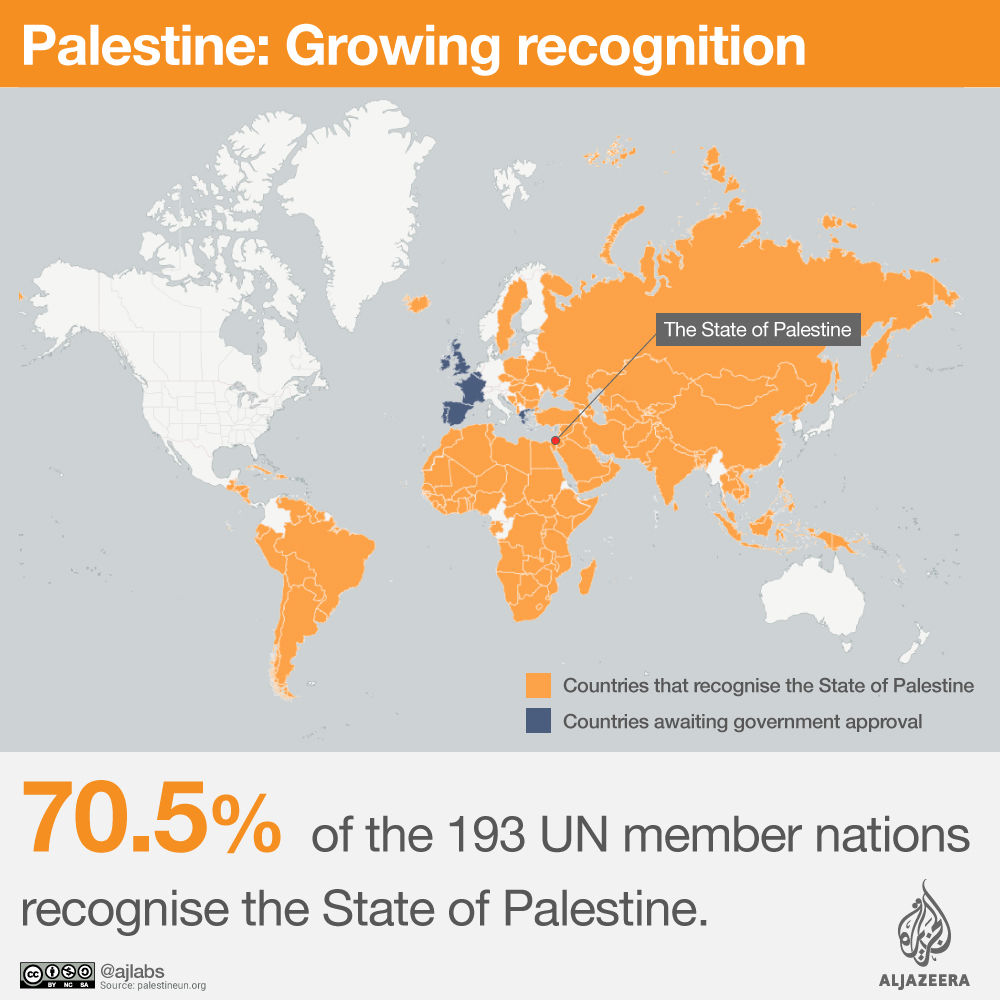
The question of Palestinian statehood is not merely a political one; it’s deeply rooted in international law and the interpretations thereof. The path to recognition has been fraught with complexities, shaped by differing legal interpretations and geopolitical considerations. Understanding the legal basis for Palestinian claims and the varied approaches taken by nations is crucial to grasping the current impasse and potential pathways forward.
The primary legal basis for Palestinian statehood claims rests on the principle of self-determination enshrined in the UN Charter and numerous international human rights instruments. Palestinians argue that their prolonged occupation and denial of self-governance violate this fundamental right. They point to UN resolutions, particularly Resolution 181 (II) of 1947, which proposed a partition plan for Palestine, as evidence of an international consensus supporting their right to statehood.
However, the practical application of this principle has been significantly hampered by the ongoing Israeli-Palestinian conflict and the lack of a final status agreement.
Legal Arguments for and Against Palestinian Statehood
The legal arguments surrounding Palestinian statehood are complex and multifaceted, often clashing with competing interpretations of international law and the specific circumstances of the conflict. The following table summarizes key arguments presented by both sides:
| Argument For Palestinian Statehood | Supporting Legal Basis | Argument Against Palestinian Statehood | Supporting Legal Basis |
|---|---|---|---|
| Right to self-determination | UN Charter, Article 1, paragraph 2; International Covenant on Civil and Political Rights | Lack of a negotiated final status agreement | Absence of a legally binding agreement defining borders and other key issues |
| Historical claims to the land | Historical records and UN resolutions (e.g., Resolution 181 (II)) | Security concerns of Israel | Arguments related to the right to self-defense and the need for secure borders |
| Violation of international humanitarian law in the occupied territories | Geneva Conventions, Fourth Geneva Convention relative to the Protection of Civilian Persons in Time of War | Questions of Palestinian Authority legitimacy and internal governance | Concerns about the internal political situation within the Palestinian territories |
| Existence of a de facto Palestinian state | The Palestinian Authority’s administrative control over parts of the West Bank and Gaza Strip | Lack of full control over borders and other aspects of sovereignty | Continued Israeli military presence and control over key aspects of the territories |
Differing Approaches to Recognition
Countries have adopted diverse approaches to recognizing Palestine. Some, like most of the Arab League nations, have recognized Palestine since the 1980s, basing their decision largely on principles of self-determination and support for the Palestinian liberation movement. Others, notably the United States and many European Union members, have delayed recognition, citing the need for a negotiated two-state solution and concerns about the potential implications for regional stability and Israel’s security.
Recognizing Palestinian statehood means acknowledging their right to self-determination, a complex issue with far-reaching implications. It’s a bit like understanding the delicate balance of Yellowstone’s ecosystem – for example, learning about the intricate relationships within the animal populations, as detailed in this fascinating article on the mammals of Yellowstone. Just as Yellowstone’s biodiversity requires careful management, so too does the path to a stable and peaceful Palestinian state require international cooperation and understanding.
This divergence reflects differing geopolitical priorities and interpretations of international law.
Implications of Recognition for International Relations
The recognition of a Palestinian state would have significant implications for international relations. It would alter the existing power dynamics in the region, potentially affecting alliances and foreign policy strategies. For example, the international community would be obliged to deal with a new sovereign entity, requiring adjustments in diplomatic relations, trade agreements, and security arrangements. The impact on the status quo would be substantial, potentially accelerating or hindering the peace process depending on the context of the recognition and the subsequent actions of involved parties.
The potential for increased regional instability or conversely, a path towards lasting peace, would be heavily dependent on the specific circumstances surrounding recognition and the international response. Previous instances of state recognition, such as the recognition of Kosovo, offer valuable, though not perfectly comparable, precedents in analyzing potential consequences.
The Meaning of Statehood: What Does It Mean To Recognise Palestinian Statehood
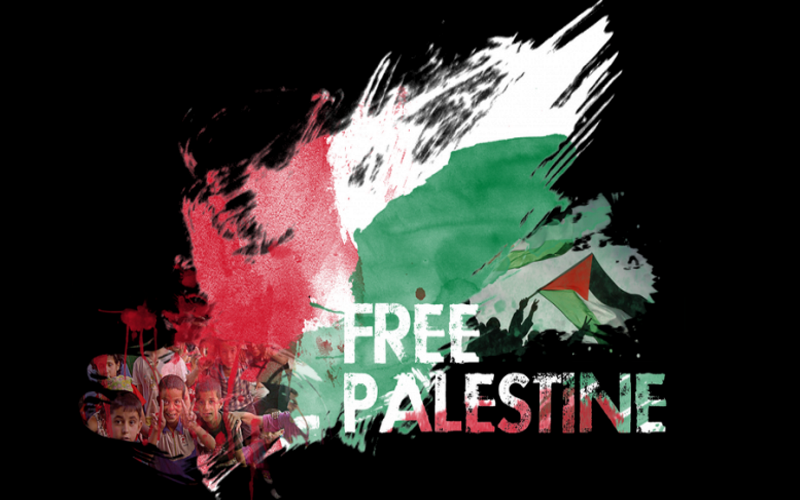
Recognizing a Palestinian state involves understanding the complex interplay of international law, political realities, and the aspirations of the Palestinian people. At its core, the question hinges on what constitutes statehood and the degree to which Palestine currently meets those criteria. This section delves into the meaning of statehood, focusing on sovereignty and self-determination within the Palestinian context.Statehood, as defined by international law, primarily rests on the Montevideo Convention of
1933. This convention Artikels four criteria
a permanent population, a defined territory, a government, and the capacity to enter into relations with other states. The practical implications for Palestine are significant, as fulfilling these criteria completely is contested and heavily debated. While Palestine possesses a permanent population and a government (the Palestinian Authority), the defined territory and capacity to enter into relations with other states remain contentious issues, deeply entangled with the ongoing Israeli-Palestinian conflict.
Sovereignty and its Limitations for Palestine
Sovereignty, a cornerstone of statehood, implies supreme authority within a territory. A sovereign state controls its borders, enacts its own laws, and determines its foreign policy independently. For Palestine, sovereignty is significantly constrained by the ongoing occupation of the West Bank and Gaza Strip by Israel. Israel maintains significant control over borders, security, and resources in these territories, limiting the Palestinian Authority’s ability to exercise full sovereign control.
This limited sovereignty directly impacts the Palestinian Authority’s ability to engage in international relations fully and independently, negotiating treaties and agreements without significant external influence. For example, the Palestinian Authority’s control over its airspace and its borders is heavily restricted, hindering its ability to control the movement of goods and people.
Self-Determination in the Palestinian Context
The principle of self-determination, enshrined in the UN Charter, grants all peoples the right to freely determine their political status and pursue their economic, social, and cultural development. In the Palestinian context, this translates to the right to establish an independent state with full control over its territory, resources, and destiny. However, the realization of this right has been significantly hampered by the ongoing conflict and the occupation.
Factors such as territorial control (the division of the West Bank and Gaza Strip, the presence of Israeli settlements), political independence (limited sovereignty), and economic viability (dependence on foreign aid and restricted access to resources) all pose significant challenges to Palestinian self-determination. The continued blockade of Gaza, for instance, severely restricts the territory’s economic development and limits its ability to function as a viable and independent entity.
Comparison of Current Palestinian Governance with Full Statehood
Currently, the Palestinians in the West Bank and Gaza Strip enjoy a degree of self-governance through the Palestinian Authority. However, this falls far short of full statehood. The PA administers certain aspects of daily life, such as education and health services, but lacks full control over its borders, security, and resources. Crucially, it cannot independently negotiate treaties or enter into full diplomatic relations with other states without significant Israeli influence.
The situation in Gaza, further complicated by the blockade and internal divisions, presents an even more limited form of self-governance. This contrast underscores the significant gap between the current reality and the attributes of a fully sovereign and independent Palestinian state. The ability to fully control borders, resources, and security apparatus, and the ability to engage freely in international relations, are key differences between the current situation and a fully functioning state.
Obstacles to Recognition and State-Building
The path to Palestinian statehood is fraught with significant obstacles, deeply rooted in the ongoing Israeli-Palestinian conflict and compounded by internal divisions and a complex web of security concerns. Achieving a viable and independent Palestinian state requires addressing these multifaceted challenges effectively. This section will explore the key impediments hindering the establishment and recognition of a Palestinian state.
The Israeli-Palestinian Conflict
The core obstacle to Palestinian statehood remains the unresolved Israeli-Palestinian conflict. Decades of conflict, punctuated by periods of violence and negotiation, have left a legacy of mistrust and entrenched positions on both sides. Key issues such as borders, Jerusalem’s status, the right of return for Palestinian refugees, and the security arrangements for a future Palestinian state remain deeply contentious and hinder progress towards a lasting peace agreement.
The continued occupation of Palestinian territories by Israel, coupled with the expansion of Israeli settlements in the West Bank, further exacerbates the situation, undermining the viability of a contiguous and sovereign Palestinian state. These actions are widely condemned internationally as violations of international law. For example, the construction of the separation barrier has significantly altered the landscape and limited Palestinian access to resources and movement.
Settlement Expansion
Israeli settlement expansion in the West Bank is a major impediment to the establishment of a viable Palestinian state. Settlements, built on land claimed by Palestinians, fragment the West Bank, limiting the territorial contiguity of a future Palestinian state and hindering its economic development. The expansion of settlements, often accompanied by the demolition of Palestinian homes and infrastructure, demonstrates a clear lack of commitment to a two-state solution and fuels resentment and violence.
The international community widely considers these settlements illegal under international law. The continued expansion makes the creation of a geographically viable and economically sustainable Palestinian state extremely difficult.
Recognizing Palestinian statehood means acknowledging their right to self-determination, a fundamental principle of international law. It’s a complex issue with far-reaching consequences, and sometimes I think about how human reactions in crisis, like the bravery of the Walmart employee who, as reported in this article el paso shooting walmart employee helped up to 100 escape says he was trained the customers come first , highlights the incredible capacity for both heroism and tragedy in our world.
Ultimately, recognizing Palestinian statehood requires a commitment to peace and justice, a commitment that must also address the everyday realities of violence and survival.
Internal Palestinian Divisions
The division between the Palestinian Authority (PA) in the West Bank and Hamas in Gaza Strip represents a significant internal challenge. This division undermines the unity and effectiveness of the Palestinian leadership, hindering its ability to negotiate effectively with Israel and to govern a future state. The lack of reconciliation between Fatah and Hamas has weakened the Palestinian cause and prevented the formation of a unified national government capable of representing the interests of the entire Palestinian population.
This internal conflict diverts resources and energy away from state-building efforts and weakens the overall Palestinian position in negotiations.
Security Challenges
A future Palestinian state would face significant security challenges. These include the potential for continued conflict with Israel, the need to maintain internal security, and the threat of extremist groups. The presence of armed groups within Palestinian territories, and the potential for cross-border attacks, would necessitate robust security arrangements. Furthermore, the establishment of effective security forces and institutions capable of maintaining law and order would be crucial for the stability and viability of a Palestinian state.
The lack of control over borders and airspace, coupled with the potential for internal factional conflict, poses a major security risk.
Political, Economic, and Social Challenges
- Political Challenges: The ongoing conflict, lack of political unity, and the absence of a final status agreement with Israel are major political hurdles. The issue of Jerusalem’s status, the right of return for Palestinian refugees, and the division between the West Bank and Gaza Strip remain deeply divisive and hinder the establishment of a stable and unified Palestinian state.
- Economic Challenges: The Palestinian economy is heavily reliant on foreign aid and suffers from high unemployment and poverty rates. The occupation has severely limited economic opportunities, and the lack of control over resources and borders further hinders economic development. The ongoing conflict and the associated security concerns also deter foreign investment and hamper economic growth.
- Social Challenges: High unemployment, poverty, and limited access to essential services, such as healthcare and education, contribute to social unrest and instability. The occupation has severely impacted the quality of life for many Palestinians, creating deep-seated resentment and frustration. The lack of social cohesion and the internal political divisions further exacerbate social challenges.
The Impact of Recognition on the Ground
Recognition of Palestinian statehood, a seemingly abstract political act, would have profound and multifaceted consequences on the ground, dramatically altering the lives of both Palestinians and Israelis. The impact would ripple through economic, social, and political spheres, potentially ushering in an era of either lasting peace or heightened conflict, depending on the manner in which the transition is managed.
Consequences for Palestinians and Israelis
The immediate impact on Palestinians would hinge on the specifics of any agreement. Full statehood could mean increased control over resources, infrastructure, and borders, leading to improved living conditions and greater self-determination. However, it could also exacerbate existing tensions if the transition is poorly managed or if fundamental disagreements remain unresolved. For Israelis, the consequences would depend heavily on the nature of the peace agreement accompanying statehood.
Increased security could result from a stable Palestinian state, but conversely, unresolved issues could lead to continued instability and conflict. The potential for both positive and negative outcomes highlights the complexity of the situation. A successful transition would require meticulous planning, compromise, and a commitment to peaceful co-existence from both sides. Failure to achieve this could lead to further hardship and suffering for both populations.
Economic Impacts of Statehood
The economic implications are equally complex. A recognized Palestinian state could attract foreign investment and aid, stimulating economic growth and job creation. Improved infrastructure and access to international markets could significantly boost the Palestinian economy. However, the initial economic transition might be challenging, requiring significant investment in rebuilding infrastructure and establishing essential institutions. For Israel, the economic impact is less straightforward.
While a peaceful resolution could lead to increased trade and economic cooperation, the potential loss of access to certain resources or markets could create short-term economic difficulties. The long-term economic benefits, however, are likely to outweigh the short-term challenges if a stable and prosperous Palestinian state emerges. The example of the peace process between Israel and Egypt, while imperfect, demonstrates the potential for improved economic relations following a successful resolution of long-standing conflicts.
The increase in tourism and trade between the two countries following the Camp David Accords illustrates the potential for economic gains.
Hypothetical Scenario: Social and Political Transformations
Imagine a scenario where a Palestinian state is recognized, following a negotiated agreement that addresses core issues like borders, security, and the status of Jerusalem. Initially, there would be a period of cautious optimism, with increased international investment flowing into the Palestinian territories. New institutions would be established, fostering a sense of national identity and pride among Palestinians.
This could lead to a reduction in internal conflict and a focus on nation-building. However, the process wouldn’t be without challenges. Reconciling differing political factions within Palestinian society would be crucial for maintaining stability. Furthermore, managing relations with Israel would require constant dialogue and compromise. A successful transition would depend on building trust and establishing mechanisms for conflict resolution.
Failure to do so could result in a resurgence of violence and instability, undermining the gains made during the transition. This hypothetical scenario highlights the importance of a well-structured and carefully managed transition process. The success of such a transition would not only depend on the recognition itself but also on the ability of both sides to address the underlying issues that have fueled the conflict for decades.
Alternative Perspectives and Approaches
The Israeli-Palestinian conflict, despite decades of negotiations and international involvement, remains deeply entrenched. The pursuit of a two-state solution, while widely supported, faces significant obstacles. Understanding alternative perspectives and approaches is crucial for envisioning a future resolution, even if these alternatives themselves present unique challenges. Exploring these different viewpoints allows for a more nuanced understanding of the complexities involved.The path to a peaceful resolution isn’t limited to the traditional two-state framework.
Several alternative approaches have been proposed, each with its own set of proponents and detractors. These alternatives often challenge fundamental assumptions underlying the current negotiations and offer different ways to address the core issues of land, sovereignty, and security. A thorough examination of these alternatives is essential for fostering a comprehensive and informed debate.
One-State Solution
The one-state solution proposes a single, binational state encompassing both Israel and Palestine. Proponents argue this approach would resolve the issue of land division and establish equal rights for all citizens regardless of their ethnicity or religion. However, concerns exist regarding the potential for demographic imbalance and the challenges of ensuring equal rights and representation within a single state.
The historical context of the conflict, marked by deep-seated mistrust and animosity, makes the immediate implementation of a truly equitable one-state solution a significant challenge.
“A one-state solution, while seemingly simple on the surface, presents monumental challenges in terms of governance, power-sharing, and ensuring the protection of minority rights. The deep-seated historical grievances and the current power imbalance make it a high-risk proposition requiring careful consideration and a comprehensive plan for its implementation.”
Confederation
A confederation model suggests a loose association between an independent Palestinian state and Israel, sharing certain responsibilities while maintaining separate sovereignties. This approach aims to address concerns about security and economic interdependence while allowing for a degree of self-determination for both sides. However, the definition of the specific responsibilities shared and the degree of autonomy maintained by each entity would need to be meticulously negotiated and agreed upon, a process fraught with potential disagreements.
“A confederation offers a potential middle ground, allowing for both separate statehood and cooperation on vital issues like security and resource management. However, the success of this model hinges on a high level of trust and willingness to compromise, which currently remains a significant hurdle.”
Regional Integration, What does it mean to recognise palestinian statehood
This approach focuses on broader regional cooperation and integration, aiming to address the conflict within a larger context of Middle Eastern peace and stability. Proponents argue that resolving the Israeli-Palestinian conflict requires a regional approach that addresses wider geopolitical issues and promotes economic development and cooperation. This approach often involves international actors and seeks to integrate both sides into a broader regional framework, promoting economic growth and stability.
However, this approach faces significant hurdles due to the complex geopolitical landscape of the region and the involvement of various actors with conflicting interests.
“Regional integration offers a broader framework for addressing the conflict, linking it to wider regional stability and economic development. However, the success of this approach depends on the willingness of regional actors to cooperate and prioritize regional peace over individual national interests.”
Recognizing Palestinian statehood is not merely a symbolic act; it carries profound legal, political, and humanitarian consequences. While the path forward remains uncertain, grappling with the complexities of this issue is crucial for understanding the ongoing conflict and fostering a more just and peaceful future in the region. Ultimately, the question of recognition boils down to fundamental principles of international law, self-determination, and the pursuit of lasting peace in a volatile and historically charged landscape.
The debate continues, and the need for thoughtful consideration remains paramount.


